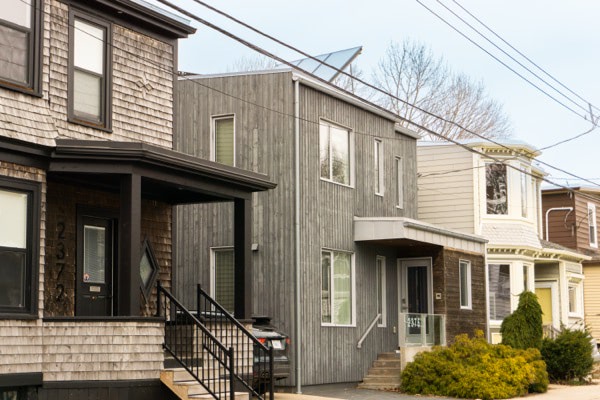How fast can you pay your mortgage off? Can you speed up the process? Here’s what you need to know!

Here’s what you need to know about self-employed mortgages
Lots of Canadians are attracted to the idea of being self-employed. It definitely has its benefits, such as increased flexibility and independence. If you are currently self-employed and in the market to buy a home, you may be wondering how the process works, and if it differs from when you are not self-employed. Can you even get a mortgage when you’re self-employed? Most working Canadians can get a mortgage at some point, including self-employed individuals, but the process will look different. Although self-employment has its advantages, getting a mortgage can be a bit difficult. Here’s what you need to know about securing self-employed mortgages.
When do you need one?
Obviously, self-employed mortgages are for self-employed workers, but what counts as self-employed? We often associate “self-employed” with people who own and operate their own businesses, and therefore are their own bosses. Self-employed workers often control their own hours, can charge their own rates, and can choose whether or not they will take on certain work.
However, you don’t necessarily need to own a business to be self-employed. You could be a freelance writer, for example, or a doctor who schedules their own hours at a hospital. Basically, if you have no single boss or obligations to any payer, you are self-employed.
What are the potential obstacles?
Proving your income
As a self-employed worker, your income stream will look a little different. First, if your business is relatively new and still growing, you may not be in a position where you can show big profits yet. Even if your business is in a successful place, you don’t have a regular paycheck or T4 from an employer, meaning your income flow is more unpredictable. Plus, remember you need to pay any employees you have before yourself. If your business is successful, though, what’s the problem?
You likely know that as a self-employed person, a big benefit is being able to use your business expenses to lower your taxable income, since many business expenses are tax write-offs. This saves you from paying more tax, but unfortunately, on paper, it looks like you’re making less money than you really are. If a lender looks at this, they might be unsure whether you’re making enough money to qualify for a mortgage.
Providing more paperwork
Documentation for a conventional mortgage is fairly straightforward. Your credit score, pay stubs, and employment letter are often good enough proof. However, since you don’t have all those items, you must take a different approach. You will need to show Notice of Assessments for two years, personal tax returns, and bank statements, for example. There’s many types of self-employment, including contractors, business owners, and freelancers. The documentation required will vary between each person, but you can bet you will need to provide more paperwork than with a conventional mortgage.
Higher interest rates
Sometimes, self-employed mortgages come with higher interest rates. In a lender’s mind, they’re taking a bigger risk on you since you don’t have that traditional paycheck and documentation. The good news is, many lenders specialize in self-employed mortgages and will still approve your application. In return for their flexibility, though, you will often need to pay higher rates. The only real alternative here is to start reporting more taxable income to prove your income. However, that will likely end up costing you more than the fees of the mortgage.
Tips to help your application
Keep your credit score up
It’s important to have a good credit score as proof to a lender that you’re a trustworthy candidate. Any type of mortgage applicant benefits from a higher score, as it opens more opportunities for lower interest rates and increases trust with the lender. If you have any business debts, start paying them off now to increase your available credit. Lowering your debts will help increase your credit score, and show lenders you’re ready for a mortgage.
Make a big down payment
Bigger down payments are usually more appealing because it shows increased commitment to a home purchase. If a borrower puts 20 per cent down, this means they really intend on buying the home and are less likely to walk away from it. This commitment takes some stress away from lenders, and it will help you earn their trust and approval.
Have your documentation ready
You don’t want to be rushing to put your documents together at the last minute. Homes go fast in a seller’s market and you need to be prepared. There’s no point wasting time last minute with tasks you can complete ahead of time, which includes putting your paperwork together. Whatever documents your situation requires, be sure to have them assembled ahead of time. If you’re unsure what kind of documents you’ll need, this is where a broker comes in handy.
Use a mortgage broker
A mortgage broker can be a big help to your mortgage application. Brokers can tell you what your financial position is, what documents you should provide, and what kind of interest rates you should expect. The more information a broker has, the more assistance they can provide. A broker will work to find you the right lender for your situation, even if it’s not a conventional one. If you need to consider alternative lending with self-employed mortgages, a broker can guide you through that process.
Securing a self-employed mortgage may be a bit tricky to navigate, but it’s certainly not impossible. It all comes down to your financial situation, how organized you are, and if you have the right industry professionals on your side.
If you have any questions about self-employed mortgages, get in touch with us at Clinton Wilkins Mortgage Team! You can call us at (902) 482-2770 or contact us here.


